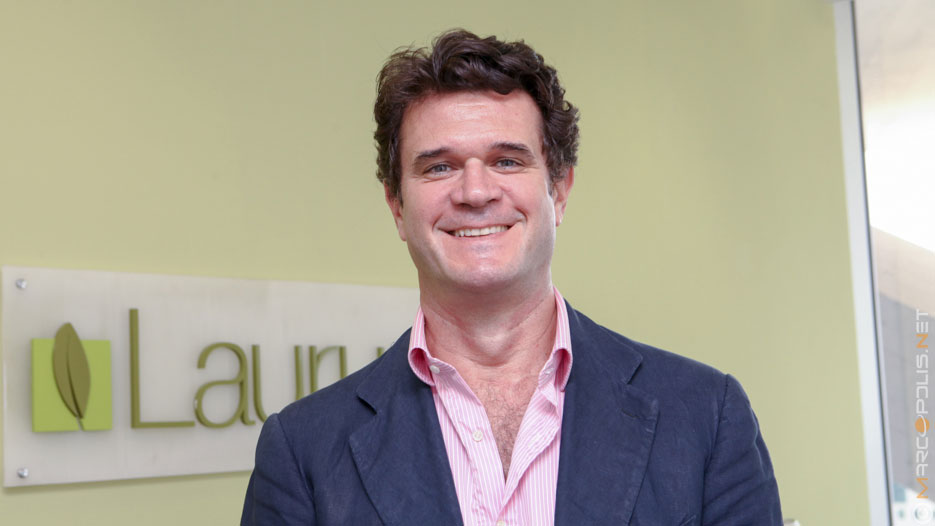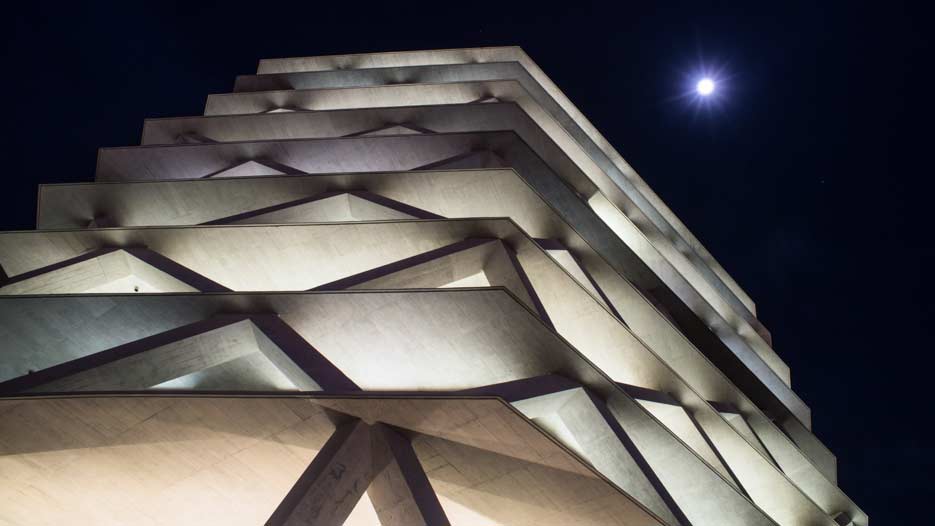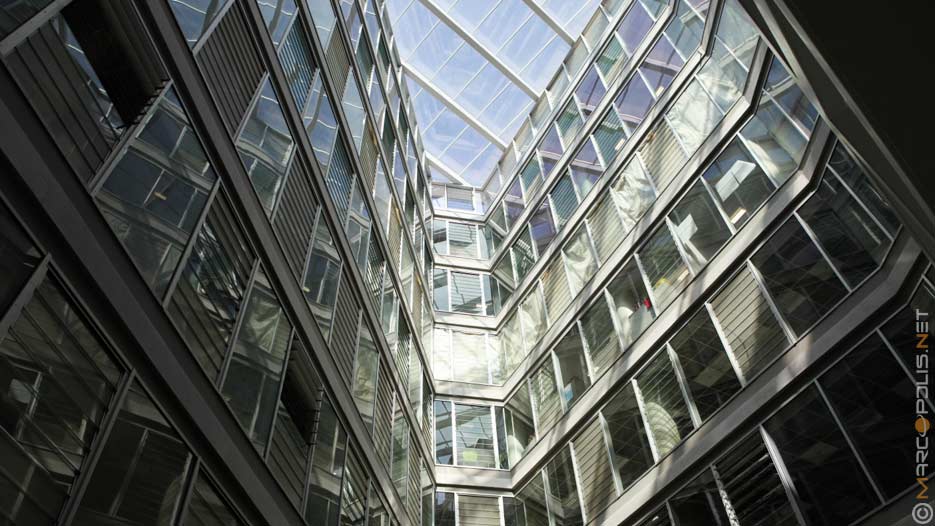First Commercial Building with A Green Certificate in West Africa: One Airport Square
“I would like Laurus to have a West African profile, but still based in Ghana because I think it is one of the best environments to set up a regional operation for many reasons.”
Interview with Carlo Matta, CEO of Laurus Development Partners

How is the Ghanaian real estate sector affected by the current economic downturn?
The real estate market in Ghana has changed significantly since we started here six years ago. It has changed mainly on two dimensions: there has been an increase in supply, a lot of developers came into Ghana, both local and international and started developing. Secondly, there has also been a strong change in demand. Of course if we look at office buildings; companies move when the prospects are bright and tend to wait if the economy is on shaky ground. In the last couple of years this has been the case and so a lot of tenants have been postponing their decision to move to a later time when the economy looks brighter.
I must admit that the building we have just finished, which is this building we are in now, was completed at the end of 2014 and so far the leasing has been quite good despite the economy. I believe it is because we offer a product that is a bit different from most of the products on the market; we offer a larger floor space to be able to work laterally instead of having to go up and down on different floors. In that respect we have been quite lucky and we cannot complain but it still is below what we expected when we launched this development.
In the residential space, anyone walking in Accra can see a huge increase in the supply of new developments. Most of them are in the luxury, high end spectrum of the market. However that has created a little bit of oversupply. In terms of hotels, I still see that the market is under supplied; there is still room to do more because we have started from such a low base compared to other African countries. There is space for another three to five high end brand hotels.
The other thing to be mentioned is that although the economy is on shaky ground and there is no doubt about that, Ghana and Africa as a whole is a more of a long term play. You need to think about the long term. Real estate anywhere in the world goes through cycles, so now we are in a certain part of the cycle, there is no doubt that there will be a rebound and I think anybody with a long term view will benefit from Ghana’s growth long term.

We are now in One Airport Square, the building you finished last year, what is specific about this building? You mentioned that the occupancy is not as you expected, what is it at the moment in terms of a percentage?
The occupancy of this building is now at 80%. We are in discussion with a couple of large tenants that would bring the occupancy to almost full occupancy. Of course, six months after completion you would expect the building to be 100% occupied, so as I said it is below our expectations but still better than some of the competing schemes that have been completed or are about to be completed. It is also much better than what the economy warrants given the situation.
What is specific about this building? First of all this building is the first commercial building to achieve a green certificate. It has a certification of 4 green stars. It is the first commercial building not only in Ghana but in West Africa, with the green certification.
The building offers a large floor space, so companies can occupy one floor as opposed to allocating on multiple floors, which improves efficiency in operations. It is a building that is Class A and offers the same type of quality of space and efficiency that a Class A office building would offer in London, New York or Singapore for example. As you can see from the façade, the architecture was designed to make a very strong statement and to try to create a building that is a bit different from the other buildings that have been built so far or that are being completed now in Accra and the rest of West Africa.
What is specific about this building? First of all this building is the first commercial building to achieve a green certificate. It has a certification of 4 green stars.
It is an easily recognisable building from outside.
It is very recognisable, it has a very striking lattice-work structure and I believe it will definitely leave a long term legacy in this city.
Could you tell us a bit more about the green certificates?
Well, everybody can claim that they are developing a green building. A green building is an environmentally sustainable building. However there are global bodies that actually have the power to certify whether or not the building really is green. The building is green when it was actually designed to be green. You typically hire a sustainability consultant who guides you through the design process on what to put in, in terms of the design. For example, this building harvests rain water, so when it rains we collect the water in tanks and then this water is used to flush the toilets and to water the landscape. We have a big atrium as you come in, and it works as a giant chimney because it sucks the hot air out. So the building can be either on full air conditioning mode or it can be a naturally ventilated space. By using the natural ventilation you reduce the use of air conditioning and therefore you reduce the use of electricity. This is a building that will use around 30% less energy than the peer office building in Accra. All of this contributes to the building becoming a green certified building. You need to submit all of the drawings and have a constant dialogue with the certification entities and at the end of the process, once the entity has done a tour analysis, they issue the green certification. They give you a plaque to put in the lobby and it becomes a green building.

Let’s talk about the other building you have here in Accra, which is The Exchange.
We were the development manager for The Exchange. It is a joint venture between two investors, one is Actis, which is a private equity group based in London, the other investors is a local group called Mabani. They hired Laurus to bring the project from the very beginning when it was just a piece of land to a fully designed and ready to be built project. The project is about 70,000m2 of mixed use. It will feature the first Radisson Blu hotel in Ghana. It will have 12,000m2 of high end retail. It is going to be organised a bit differently from the other developments because it is not going to be the typical shopping mall, it will be more of a high street, village, pedestrian environment where people can just go and relax. We also feature 100 units of high end residential. Then we have a phase 2 which will have 2 office buildings of 8000m2 each, but given the market conditions it will only be launched when tenancy is secured to a certain level to warrant the beginning of the development. The ground has now been broken, so construction has started and we should be able to deliver the hotel, which will be the first building to be delivered, in say two or two and a half years from now.
What are your main challenges?
There are a lot of challenges but that is one of the reasons we are here. If there weren’t any challenges there would be no reason for us to be here. The biggest challenge is to find the right local expertise for design and construction. To overcome that challenge we try to mix local architects and engineers with international architects and engineers. We bring them together so that each can contribute their knowledge. Another big challenge is the contractors; there are not enough sophisticated, mature contractors to build Class A category buildings or a Class A shopping centre or a project of a certain size. Therefore what you have to do is sometimes you have to encourage foreign contractors to come in on a joint venture with a local contractor so that you can have the best of both worlds. It is definitely a challenge. There is a challenge when you look at new projects, in finding clean land titles. The latter is a problem all over Africa, not only in Ghana. It is difficult to find good land with clean titles. The market is a bit of a problem but it depends on the country. As I said before, every country goes through a cycle so perhaps the market doesn’t look very appealing now but it might be a fantastic market to exit, say three years from now. It is just a matter of staying in for the long term and you will find the right sweet spot for your development.
So to conclude, when we come back once again in two years, where would you like Laurus to be?
If we are thinking about three or four years down the line, I would like Laurus to have a West African profile, but still based in Ghana because I think it is one of the best environments to set up a regional operation for many reasons. I see us having more of a West African profile and having done more projects here in Ghana despite the shaky economy.
FAIR USE POLICY
This material (including media content) may not be published, broadcasted, rewritten, or redistributed. However, linking directly to the page (including the source, i.e. Marcopolis.net) is permitted and encouraged.